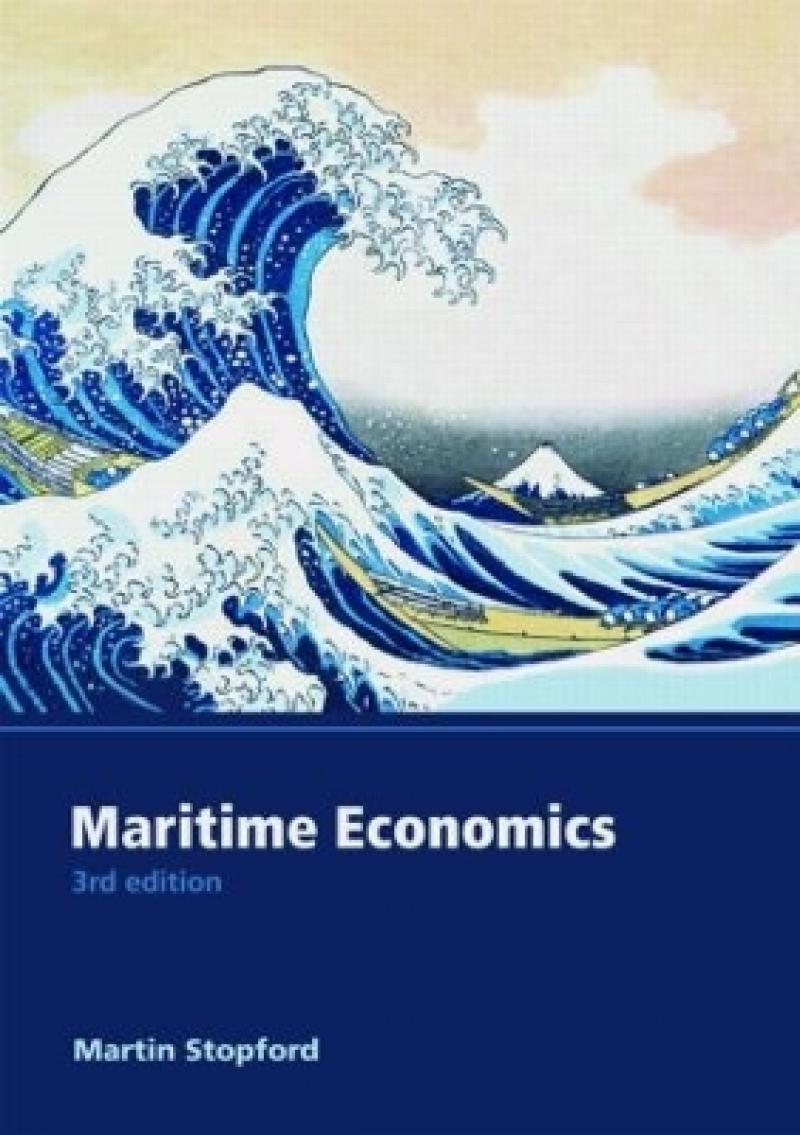For 5000 years shipping has served the world economy and today it provides a sophisticated transport service to every part of the globe. Yet despite its economic complexity, shipping retains much of the competitive cut and thrust of the “perfect” market of classical economics. This blend of sophisticated logistics and larger than life entrepreneurs makes it a unique case study of classical economics in a modern setting.The enlarged and substantially rewritten Maritime Economics uses historical and theoretical analysis as the framework for a practical explanation of how shipping works today. Whilst retaining the structure of the second edition, its scope is widened to include:lessons from 5000 years of commercial shipping historyshipping cycles back to 1741, with a year by year commentaryupdated chapters on markets; shipping costs; accounts; ship finance and a new chapter on the return on capitalnew chapters on the geography of sea trade; trade theory and specialised cargoesupdated chapters on the merchant fleet shipbuilding, recycling and the regulatory regimea much revised chapter on the challenges and pitfalls of forecasting.With over 800 pages, 200 illustrations, maps, technical drawings and tables Maritime Economics is the shipping industry’s most comprehensive text and reference source, whilst remaining as one reviewer put it “a very readable book”.Martin Stopford has enjoyed a distinguished career in the shipping industry as Director of Business Development with British Shipbuilders, Global Shipping Economist with the Chase Manhattan Bank N.A., Chief Executive of Lloyds Maritime Information Services; Managing Director of Clarkson Research Services and an executive Director of Clarksons PLC. He lectures regularly at Cambridge Academy of Transport and is a Visiting Professor at Cass Business School, Dalian Maritime University and Copenhagen Business School.
Les mer
Combining a sophisticated historical and theoretical analysis of the shipping industry with a practical explanation of all aspects of the shipping industry, this third edition is essential reading for students and professionals with an interest in this area.
Les mer
Part 1: Introduction to Shipping 1. Sea Transport in the Global Economy 2. The Economic Organization of the Shipping Market Part 2: Shipping Market Economics 3. Shipping Market Cycles 4. Supply, Demand and Freight Rates 5. The Four Shipping Markets Part 3: Shipping Company Economics 6. Costs, Revenue and Cashflow 7. Financing Ships and Shipping Companies 8. Risk, Return and Shipping Company Economics Part 4: Seaborne Trade and Transport Systems 9. The Geography of Maritime Trade 10. The Principles of Maritime Trade 11. Transport of Bulk Cargo 12. Transport of Specialised Cargoes 13. Transport of General Cargo Part 5: The Merchant Fleet and Transport Supply 14. The Ships that Supply the Transport 15. The Economics of Merchant Shipbuilding and Scrapping 16. The Regulation of the Maritime Industry Part 6: Forecasting and Planning 17. Maritime Forecasting and Market Research
Les mer
'This is a splendid book, well illustrated, with plenty of technical explanation as to the hardware employed by this fascinating industry. It deserves to be at the elbow of all those who pretend to any knowledge of the amazing maritime world we cheerfully inhabit.' - Michael Grey, Lloyd's ListMaritime Economics is an exceptionally well-written overview of the international shipping industry. - CHOICE
Les mer
Produktdetaljer
ISBN
9780415275583
Publisert
2008-12-19
Utgave
3. utgave
Utgiver
Vendor
Routledge
Vekt
1638 gr
Høyde
246 mm
Bredde
174 mm
Aldersnivå
UU, UP, 05
Språk
Product language
Engelsk
Format
Product format
Heftet
Antall sider
816
Forfatter
